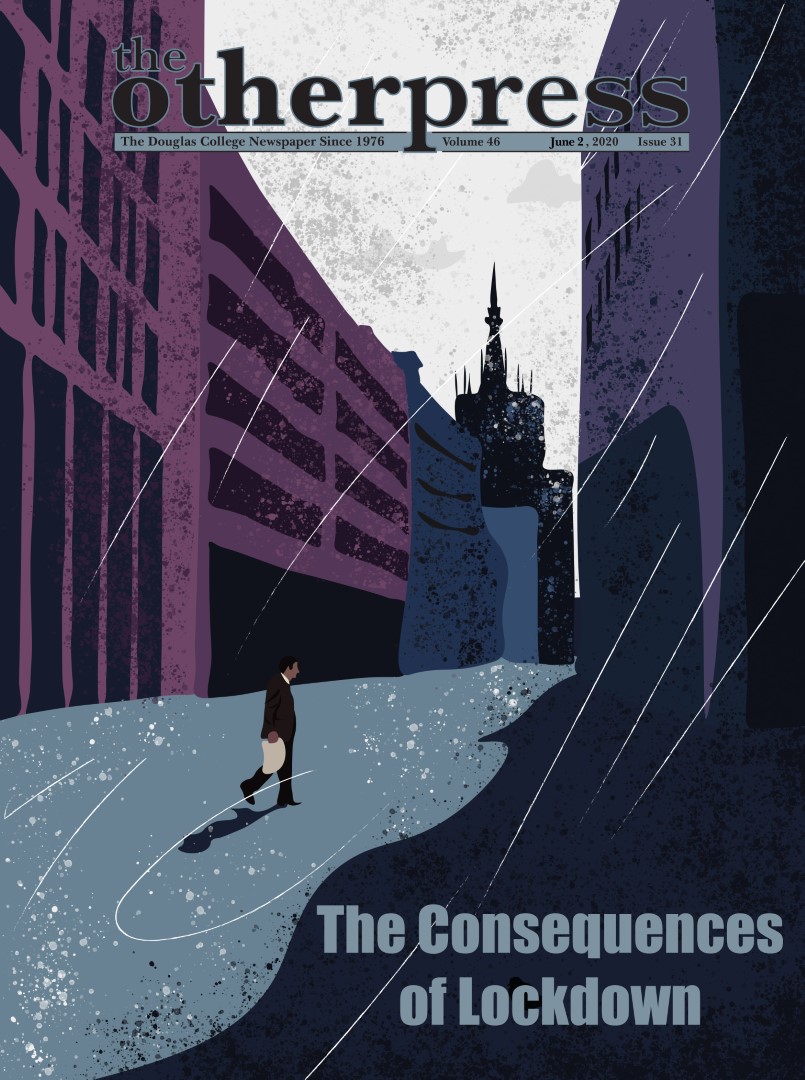
It might be time to realize that we have collectively crossed the rubicon and it is time for us to stop asking our parents for advice in a world so drastically different from the one they experienced in years long passed.
Is it dead or just different?
By Matthew Fraser, Editor in Chief
When I first started collecting records I quickly fell in love with Bossa Nova; the Brazillian Jazz fusion contained countless layers and tones for me to explore and a near-limitless number of records for me to lust after. As I purchased more and more records, I eventually stumbled across “Insensatez” by Antonio Carlos Jobim and Vinicius de Moraes. Though almost every version is perfect, the one performed on Jazz Samba Encore! with Maria Toledo singing struck me the most. As the song’s intro slips away, Toledo sings the mournful words of someone foolish, insensitive and ultimately undeserving of love. Though Stan Getz comes in with a powerful and almost redeeming solo, the bleak nature of forlorn and unhappy heartbreak remains the song’s core even as the last notes fade away.
A few weeks ago, a friend of mine asked me what love meant. Unbeknownst to me, they had begun the process of a divorce and were lost in their own world of heartbreak and indecision. But I realized shortly after the question was asked that I had no answer. I had no idea what it was that poets say sets the blood aflame or cause hearts to break. I didn’t even have a frame of reference in loneliness and longing to set forwards as a touchstone.
As always, when Valentine approaches, singles and couples alike must be absorbed into the actions, images and desires that we broadcast to the world as love. But does love just mean flowers and roses? Is love summed in the word devotion or totalled in the value of a ring? Does love exist beyond just a word or is love now a long dead and forgotten thing lost to most millennials and Gen-Z?
If just one thing has been blamed for the end of love and the precipitous decline in marriage in this generation, it’s hook-up culture and pre-marital sex. Dating gurus have spoken plenty on it while youth pastors and religious teachers have warned against it. Even the ever-so-popular and controversial public intellectuals Jordan Peterson and Ben Shapiro have jumped in the ring to let everyone know of the dangers of casual sex and its deleterious effects.
Yet, in a 2019 New York Times article biological anthropologist Dr. Hellen Fisher is quoted as saying “The first date has changed—it’s time-consuming and expensive. Now [millennials] have a sex interview with a person to see if they want to invest in a first date.” Though I think referring to things as a “sex interview” is both weird and overly formal, the core concept is correct; there are some people in whom you don’t want to invest relationship energy. Even if older generations feel that pre-marital sex is the worst way to figure that out, it hasn’t stopped Millenials the world over from doing it.
But the willingness amongst Millenials and Gen-Z to engage in casual sex isn’t the defined end of love and marriage as that would imply that previous generations did not have pre-marital sex and thusly were more interested in the sex withheld from them before nuptials. Any movie watcher who has seen movies made in the ’70s and onwards is fully aware that youth sexuality was just as much a topic before as it is now. And when one considers 90’s classics like Kids or Cruel Intentions it becomes even harder to argue that today’s sex is ruining the sanctity of marriage that was previously unsullied.
But not all millennials are making it to this “interview” stage; rather, if there is much in the way of pre-marital sex happening it seems to be restricted to a relatively small group while the rest are left on the wayside. Insider dedicated a brief article to a January 2021 study by Rutgers and Albany Universities which outlined a significant decrease in the amount of casual sex 18 to 23-year-olds were having versus the same age group 10 years prior and in a more interesting turn, The Harvard Crimson found that 60 percent of the freshman class of 2022 self-reported being virgins. If anything, these numbers lead to the long-feared theory that the youth are suffering a “sex recession.”
Conversely, there is the burgeoning group of involuntarily celibate people, i.e., people who would be sexually active if given the opportunity. Although incel often derogatorily refers to men who hold hateful views towards women, the term actually originated in the 1990s from a Canadian woman named Alana. However, the presence of the term underlines the fact that more than just sexual activity amongst a relatively small section of the youth population is causing the marital dearth that currently grips the western world.
At times it has seemed apropos to blame dating apps and websites like Tinder or Bumble for the lack of marriages. Often called the paradox of choice, the theory holds that as your options increase and you have more to choose from, the harder it is to make a decision. The problem with too many options is said to be the fear of making the wrong decision. While this may explain some of the lack of long-term relationship building, the idea of “settling” or “dating someone below your league” is certainly not new and quite likely to have had similar effects.
The next big bugbear accused of halting the advancement of love and marriage is the march towards consensual non-monogamy (CNM for short) and alternative lifestyles. People have been doing it for years with varying degrees of success, but only recently has it become relatively mainstream. Gone are the days when the husband and his secretary were an open but shameful secret. Now the idea of being “The Other Man” is an all too common possibility if you spend enough time on dating apps and websites. But that hasn’t seemed to spell the doom of marriages and a collapse in the total quality of relationships. Far from it as some relationship experts believe that it is often beneficial for the right couples.
In a 2020 BBC article, Samantha Joel, assistant professor of social psychology at Western University explained that “people in CNM report having open communication [because] it is difficult to be CNM if you are not talking about boundaries. Whereas in monogamous couples, those discussions about boundaries often don’t happen.” Likewise, in an article for Psypost, Justin K. Mogilski of the University of South Carolina Salkehatchie referenced research that found CNM benefits to include “diversified need fulfillment, more frequent social opportunities, and more fluid sexual expression.”
But what does all of this say about the future or even the current state of millennial love? For one, it’s probably safe to say that no one person has an answer to the problem. As a matter of fact, it’s almost guaranteed that no one can even define the problem in a way that makes sense in the modern world. Are we talking about the decrease in people at the altar or are we talking about a drop in “committed” relationships? Between the prevalence of homosexuality and bisexual relationships, coupled with the increasing acceptance of transgender people, much of the old way of defining relationships makes little to no sense in the modern-day.
Next is the fact that what defines success has drastically changed. It used to be that the nuclear family of a stay-at-home mom and a hard-working but emotionally unavailable husband raising two kids while concealing their fights, differences and at worst, abuse were still considered a success. Now, a family where the woman is the primary breadwinner is no less successful or, one in which they have no kids is just as healthy. Once again, adding any of the modern sexual dimensions like homosexual couples or throuples (a romantic group of three) make a relationship just as successful on a personal level, though a complete failure if not abomination by old standards.
As a result, it may just be time for current youth floundering in the dating market to realize that there are no cheat codes for the modern state of love and maybe there are no definitions to give. It might be time to realize that we have collectively crossed the rubicon and it is time for us to stop asking our parents for advice in a world so drastically different from the one they experienced in years long passed. That doesn’t mean that practices like ghosting are suddenly great or acceptable, but rather that we are going to have to define love and relationship success for ourselves on a near-case-by-case basis and hope that future generations don’t rip up our definitions as we have destroyed old ones.
Love exists in the year 2022 and all future years, but it might look less and less like the male-female couples of our old movies and more like the free-love of a religious nightmare. For some, it will undoubtedly be better to take the traditional route and stay monogamous, for others, it might be the freer nature of CNM or a two-plus-two relationship. However, regardless of the root taken, there will always be friends to ask what love really is and moments to belatedly listen to “Insensatez.”



